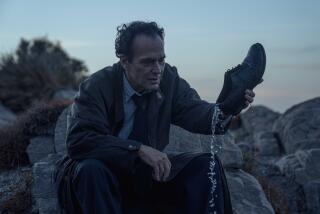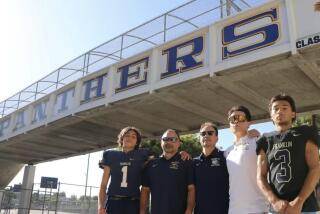Enrique’s Journey | Chapter One: Along the Tracks: Jose Enrique and Jose Luis
Jose Enrique Oliva Rosa and Jose Luis Oliva Rosa, 15, are twins.
Their father left their home in Honduras before they were born. Their mother went to work in Los Angeles when they were 6. Finally, a grandmother could no longer afford to feed them, so they were separated and passed among relatives.
Both were unhappy.
On June 3, 1999, they set out together to find their mother. Although she had grown estranged, they hoped that she would embrace them and let them live with her. They vowed never to part again.
But it is nearly impossible for migrants to travel the length of Mexico together. Even twins.
For a while, Jose Enrique and Jose Luis succeeded.
Together they rode 20 trains. Together they escaped a shootout between two gang members and Mexican immigration agents, or la migra. Together they believed a myth that sleeping on railroad tracks kept snakes away--and they were nearly killed.
“I felt dead, that train got so close,” Jose Enrique says.
In Veracruz state, drug runners locked them in a house, hoping their mother would pay ransom. The twins broke out, and the drug runners chased them with 9-millimeter pistols. At Donaji, police put guns to their chests and demanded their money. The twins bolted. The police fired over their heads.
They were separated four times, despite their best efforts.
Once, in Guatemala, while Jose Enrique was begging, he lost track of Jose Luis. Eventually, they found each other. Then in Tierra Blanca, Mexico, while Jose Luis was begging, a police officer chased his brother. By sheer luck, they found each other the following day, on top of a freight train heading out of town.
Farther north, in San Luis Potosi, they ran from immigration agents throwing rocks. Jose Luis helped shove Jose Enrique over a wall. As he tried to climb it himself, an immigration agent yanked on his legs and brought him down on jagged security glass. It slashed an arm. He required 37 stitches. When the Red Cross released him, he walked the streets all night, searching for his brother.
The twins found each other the next day on the outskirts of town.
Finally, on July, 19, 1999, they made it to the Rio Grande. They waded across in water up to their necks. Twice, whirlpools sucked Jose Luis under. Twice, Jose Enrique saved him. From a pay phone in Hidalgo, Texas, they called Honduras, hoping to get their mother’s phone number. An Immigration and Naturalization Service agent spotted them and pulled a gun.
The boys ran--in opposite directions.
After 24 hours, Jose Enrique realized that the only way to find his brother was to turn himself in, risking deportation and another trek north. He walked up to a U.S. Border Patrol car and rapped on a window.
“Have you seen my brother?” he asked.
Agents handcuffed him.
Five hours later, Jose Luis came to the same conclusion. Barefoot, with 40 cactus thorns embedded in his skin, he walked up to an agent.
“Have you got my brother yet?”
They found each other, at last, in an INS detention center.
Their mother rejected them, but an immigration court allowed them to stay in the United States for fear they would be killed if they were returned to the streets in Honduras. Their lawyer found a foster home in Michigan where both of them are living.
More to Read
Sign up for Essential California
The most important California stories and recommendations in your inbox every morning.
You may occasionally receive promotional content from the Los Angeles Times.










